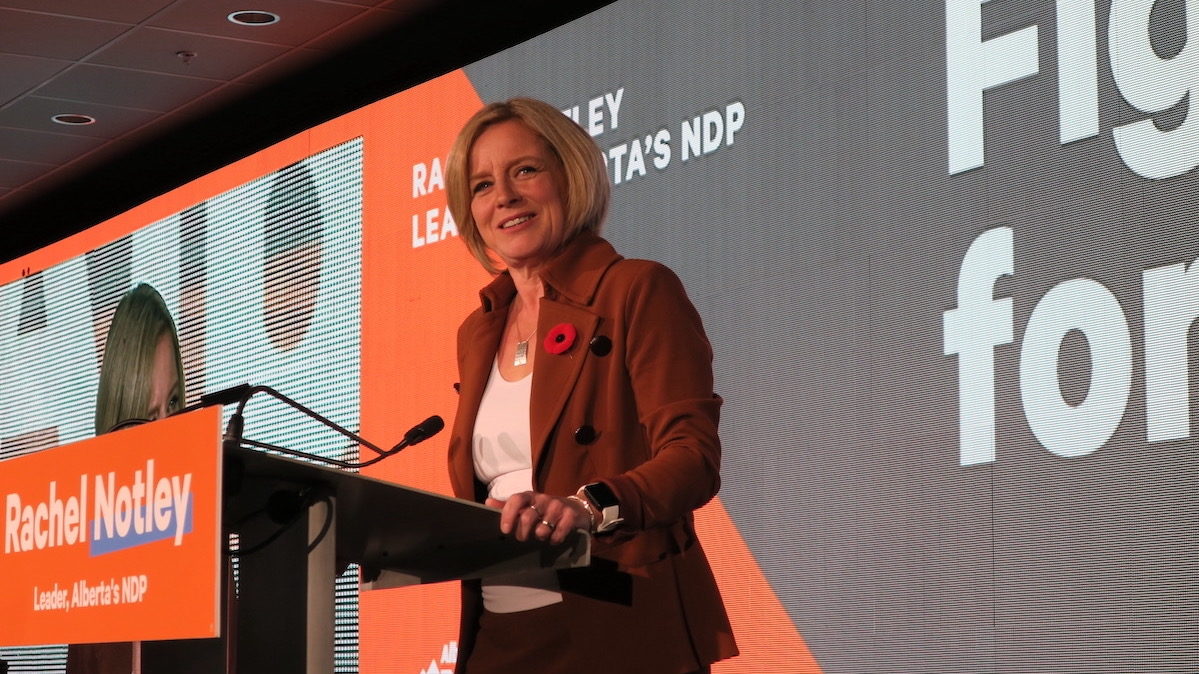It is remarkable by any measure that the Alberta New Democratic Party raised $7.1 million in 2022, not to mention that $3.2 million of that sum was donated during the fourth quarter, and more than a quarter million dollars on the last night of the year.
The NDP’s fund-raising success speaks to deep unhappiness in Alberta – which a lazy New York Times piece about Premier Danielle Smith’s so-called Sovereignty Act described misleadingly as “heavily conservative” – with the United Conservative Party (UCP) under both former premier Jason Kenney and Smith.
That’s not to say the next Alberta general election, whenever it takes place, will be a cake walk for the NDP. But there’s no way it will be a slam dunk for the UCP either, especially with Smith at the helm and the radical Take Back Alberta group tightening its hold on the party and its constituency associations.
Yes, there are important caveats about the opacity of UCP fundraising, whose constituency associations don’t have to report their fund-raising results until the end of the year thanks to the previous UCP government’s changes to Alberta election financing laws. (The NDP raises all of its money centrally and reports it each quarter.)
This was undoubtedly done to give the UCP some kind of strategic advantage in fundraising, although the effect, presumably unintended, seems to have been to establish a narrative that the NDP is raising far more money than the government party and has more momentum as a result.
Still, the UCP probably has more cash on hand that the quarterly reports make it appear.
The UCP will also have effective access to funds from corporate financed, U.S.-style political action committees that, despite the province’s election financing law, obviously co-ordinate their campaigns with the governing party. The upcoming election campaign will make this fact clearer than ever.
Further, the electoral map in Alberta is undoubtedly weighted in favour of conservative parties and politicians, no matter how unpopular they make themselves in large urban areas.
Still, the fact remains the NDP was able to raise more than $7 million, 80 per cent above the UCP’s official reported fundraising take for all of 2021. Official party fundraising fourth-quarter 2022 figures for all parties are scheduled to be published by Elections Alberta next month.
Remember, this was in a year when it was still illegal for unions or corporations to make donations to political parties. So this fundraising success by the NDP can certainly be taken as a powerful indicator of just how strong the desire is among Albertans for a return to former NDP premier Rachel Notley’s more thoughtful approach to governing this supposedly heavily conservative province.
That the NDP could raise $265,000 in a single day, on New Year’s Eve before the drinks really started to flow no less, truly says both that the party has figured out how to do political fundraising, and the anger, fear and disgust the UCP’s demonstrated incompetence under Kenney during the pandemic and its bizarre sovereignty-association campaign under Smith have aroused among many Albertans.
The NDP’s success was driven by small donors. Contributions came from more than 30,000 Albertans, including 3,500 first-time donors.
Opposition Leader Notley’s pitch is tuned to this reality: “Alberta’s NDP will end the chaos in health care, we will take real and long-term measures to address the cost-of-living crisis and we will deliver on an economic strategy that creates good-paying jobs and drives billions in new investment opportunities,” she said in the party’s news release.
Expect to hear more like that during the campaign.
“We have seen a noticeable surge of support since Danielle Smith took office,” noted NDP Provincial Secretary Brandon Stevens in the news release. “It’s clear Albertans are taking a stand against her chaotic and destructive policies.”
Premier Smith was sworn in on October 11 after she was chosen in a party leadership race in which about three per cent of Alberta’s electorate voted. Unexpectedly, she has never pivoted away from the radical sovereignty-association and anti-vaccine platform she advocated to the UCP’s far right base when she was seeking the leadership.
Beyond popular disdain for the government’s response to the pandemic and the chaos in the health care system, University of Calgary political scientist Lisa Young argued in a Substack column yesterday that while in Opposition the NDP has engaged in “a disciplined campaign to build the party machine since the 2019 election.”
“Fundraising has improved each year,” she wrote. “Candidates have been nominated well in advance of the election. This will give the party a presence ‘on the ground’ that it lacked in previous elections.”
Not only that, but the NDP has nominated serious candidates with sound credentials of a sort that were much more difficult to recruit during the party’s many years in the wilderness before Notley’s unexpected majority victory in May 2015.
Once the election campaign gets officially under way during the 28-day election campaign period expected to begin on May 1, parties will be limited to spending about $3 million, and candidates to about $53,000 each, Young noted.
“But spending is unlimited before May 1, so residents of Calgary, Lethbridge, Red Deer and a few other places should expect to be bombarded with election advertising for the next four months,” she said.
Voters can also count on the UCP to pull out all the stops to hang onto government, regardless of the inadequacies of their leader. So expect a harshly negative campaign from the government.
All of this, of course, assumes the next Alberta election will take place as scheduled next May 29. As has been said here before, this is not a sure thing if the UCP continues to poll poorly, as changing the province’s fixed-election-date law would require only a majority vote of the Legislature, easy for a majority government.



